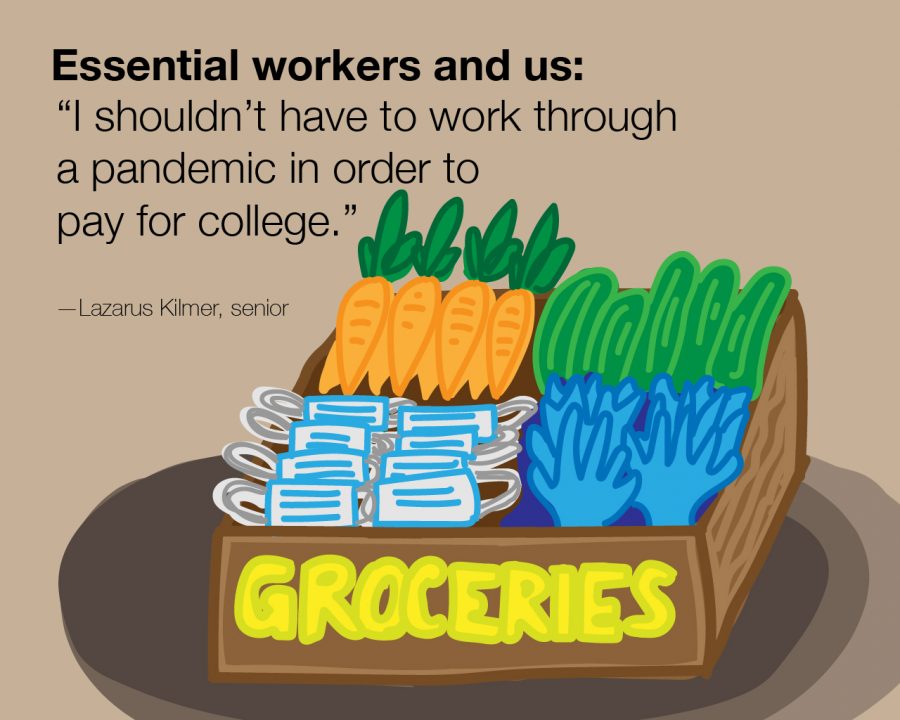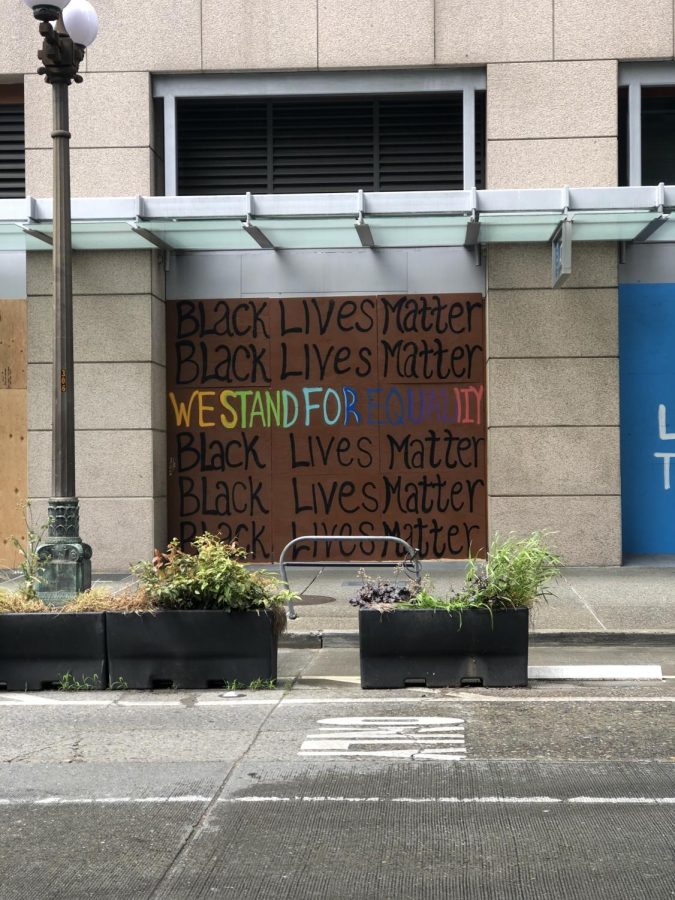As a result of the statewide stay-at-home order and other measures taken to reduce the movement of people, many workers have been forced out of their jobs or converted to working from home. One group of employees, however, are still working as usual.
“Essential workers,” defined by the Essential Services Act as people who “perform work that involves the safety of human life”, serve as the lifeline between the quarantined population and crucial resources and services.” These workers are forced to ignore the recommendations to stay at home in order to continue providing for the public, which raises concerns for consumers about the safety of the workers and the impact of working during a pandemic.
At senior Lazarus Kilmer’s drugstore workplace, all employees have been given K95 masks and access to gloves. At registers, there are plexiglass dividers placed between the customer and the cashier. Despite these precautionary measures, Kilmer said he and his coworkers are still at an increased risk of infection and transmission.
“I feel like I’m at an increased risk because I am,” Kilmer said. “There’s no beating around the question: working retail increases my chances of contracting or passing on COVID-19 to other people.”
While some of the risks may be inevitable due to the nature of the job, there are other factors employees impose on themselves and their coworkers. According to a Nordic News poll, some students who visit stores see employees forgoing personal protective equipment and putting themselves and the customers at heightened risk. Kilmer said he has noticed this at his workplace as well.
“I do have concerns for my coworkers because some of them choose not to wear the masks we’ve been provided. I feel like this is incredibly risky and unnecessary.”
Sophomore Kaia Gelatt said that this behavior is one of the reasons she has been unable to even go grocery shopping over the past few weeks.
“Around the start of the quarantine, my mom was really sick, and we had to take all the measures we could to help her,” Gelatt said. “A lot of employees weren’t taking the PPE seriously and customers in stores weren’t social distancing, which forced us to further isolate ourselves.”
In such a disorientating time, balancing online school and work, often with increased hours, is also a source of concern for some people. Several respondents to the poll noted that work has impeded them from attending Zoom lessons and long shifts leave them drained of energy that they need to complete schoolwork. Additionally, a loss of structure in their daily life led one respondent of the survey to say that it became “a never-ending spiral of work.”
The obvious choice for employees experiencing the negative effects of work would be to take a leave of absence. For some, however, this is not an option. One respondent to the poll said that their family depended on their job.
“Despite the heightened risks, I’m still grateful to have my job because I am the only one in my family working,” Wyant Taylor* said.
Additionally, Kilmer expressed concern about working during this uncertain time.
“I shouldn’t have to work through a pandemic in order to pay for college. There needs to be a change in the system if students are risking their lives in order to attain the funds.”
As regulations change and the situation in Washington continues to develop, senior Allie Robertson said she thinks workers could be put at greater risk as more people visit stores and begin to see family and friends.
“The atmosphere of caution in the community is definitely crumbling for some,” Robertson said.
With more services opening up every few weeks, it is inevitable that more people will be leaving their houses. No matter what the future holds in terms of this pandemic, Robertson said it is vital that people continue social distancing measures to protect everyone around themselves and essential workers.
“I urge people to realize that the rate of spread can easily pick up again if we end quarantine too early,” Robertson said. “It’s hard to watch the loss of faith in protective measures now to shorten the length of the crisis long term.”
*Some names have been changed to protect the identity of respondents






















